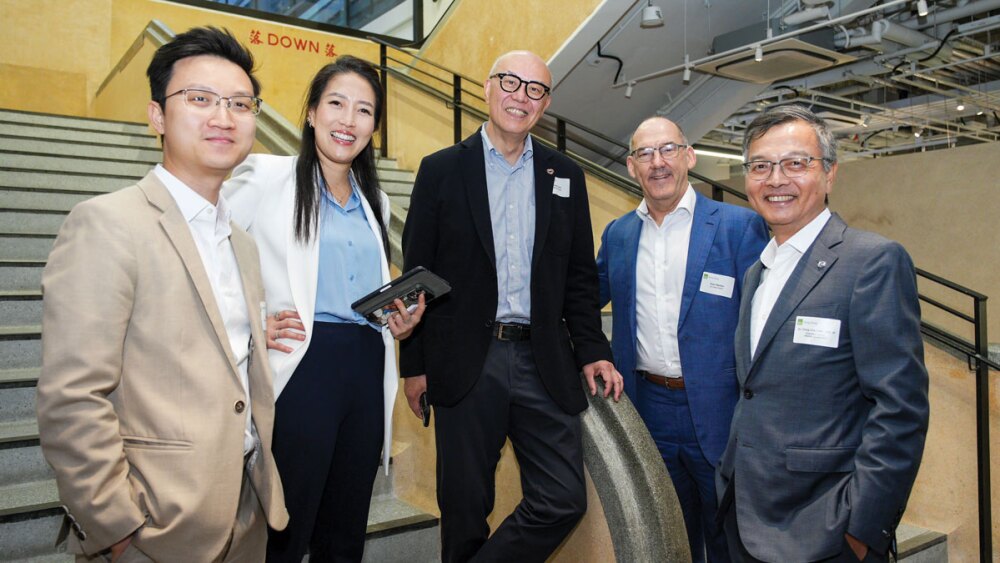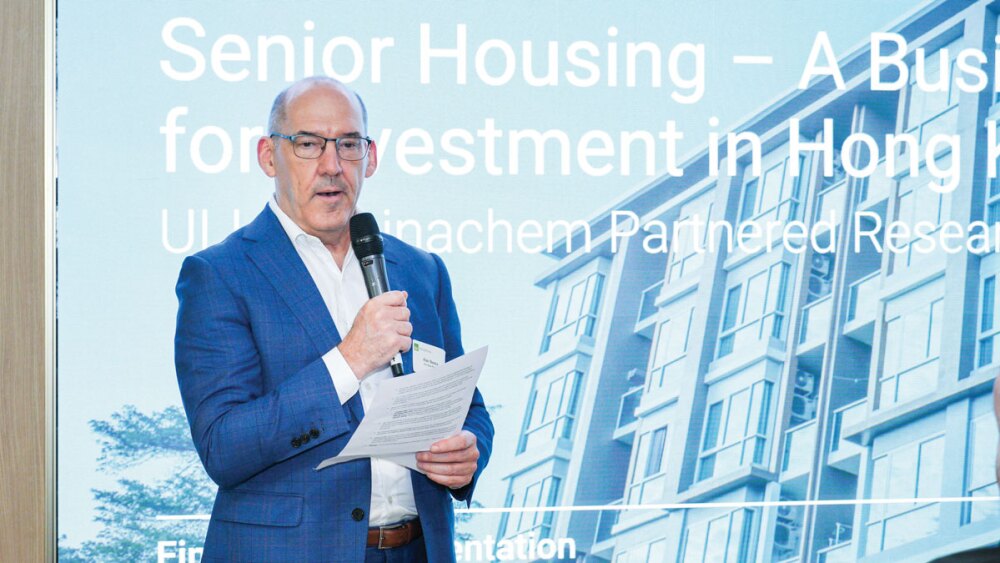The development of senior housing in Hong Kong requires high-level government support and cooperation between the private and public sectors to encourage much-needed new facilities.
ULI Asia Pacific and the Chinachem Group launched the Senior Housing: A Business Case for Investment in Hong Kong report at a seminar in Hong Kong’s Central Market on October 19, 2023. Speaking at the event, ULI APAC CEO Alan Beebe said housing attainability was one of the organization’s key mission priorities. “We believe the public and private sector [need] to come together, to work together, on innovative solutions to address this challenge,” Beebe said.
Hong Kong has a population that is among the most rapidly aging ones in the world. Between 2011 and 2021, the proportion of persons there who are 65 or older rose to 20 percent from around 13 percent. The senior population is projected to continue to increase during the next 20 years and become nearly one third of Hong Kong’s population—close to 2.5 million people—by 2038.
More than 70 percent of the senior population suffers chronic conditions, such as hypertension, diabetes, arthritis, and heart disease, which require monitoring or treatment. Many older Hongkongers are also wealthy: the median age of the city’s millionaires is 58, meaning they have the financial capacity to look to higher-end senior housing options for retirement.
One of the key reasons for developing a senior housing sector is to save the government money, according to Ryan Ip, vice president and cohead of research at the Our Hong Kong Foundation. “We have around 20 percent of government expenditure on services for seniors,” Ip said, “mainly in health care. Yet studies have shown that good senior housing means people stay healthier longer and at lower cost.”
Retirement age is 65 in Hong Kong but, globally, senior housing tends to target people 60 or older. At present, Hong Kong provides residential care homes to the elderly, which must be licensed by the Social Welfare Department. These homes target retirees who have poor health or disabilities that mean they are unable to perform the activities of daily living.
Alternative senior living types include:
- Independent living. Senior-friendly housing for retirees in good health, with cleaning and maintenance services. Design very similar to standard housing.
- Assisted living. Offering more day-to-day services, such as meal preparation and mobility assistance. Design that caters to the needs of seniors.
- Continuing care retirement community. A blend of independent and assisted living, sometimes with onsite nursing available.
- Intergenerational community. Such communities are not developed specifically for seniors but can include senior housing in the mix, which allows seniors to continue to connect with younger generations.
Barriers to development
Outside the residential care home category, Hong Kong has only five senior living facilities, with a total of just under 1,700 units. Only two of these facilities, with fewer than 1,000 units between them, are private and nonsubsidized.
A significant barrier to the development of senior housing has been the sector’s lack of specific zoning and its lower land premium, versus standard residential use. Donald Choi, executive director and CEO of Chinachem Group, said that this difference means Hong Kong developers choose for-sale residential instead.
In Australia, for example, the government provides incentives for senior housing development, including special land premiums and change of use permission for land previously allocated to light industrial purposes. Developers can also gain up to 25 percent extra floor space for senior housing.
Choi added that the services element of senior housing provision would boost returns, but customers would have to accept that they must pay for both rent and services.
Hannah Jeong, head of valuation and advisory services at Colliers Hong Kong, pointed out that building regulations also needed to change to ensure that senior housing was built to the right specifications and standards. Specialized senior living requires safe kitchens and bathrooms, as well as space for wheelchairs.
A further challenge for Hong Kong is understaffing, which is a problem already. Lam Ching-Choi, CEO of Haven of Hope Christian Service and a member of the executive council of the Hong Kong SAR government, said existing facilities management staff could be retrained to interact with elderly people.
The report also suggests that technology can be used to support senior housing and reduce the need for staff. Digital health monitoring, motion sensors (to detect falls), and internet of things (IoT) devices could help manage senior housing facilities. Communication tools and even robots could be used to keep residents in touch with families and physicians.
Historically, the city government has paid little attention to the senior housing sector, focusing instead on overall delivery of housing. Furthermore, the requirement for cooperation between government departments has been an obstacle, Ching-Choi said: “The burden of senior housing policy would fall on the development and housing bureaus, while the benefits would fall to the health and welfare bureaus.” Thus, support for senior housing “must be a political decision which comes from the top, because it benefits the whole of society.” Lam added, however, that he expected to hear more from the government regarding policy in 2024.
In the meantime, he suggested that more could be done to make existing public housing estates more senior friendly. Singapore has invested significantly in senior housing in recent years, and the city-state has been promoting active aging hubs in mainstream housing developments to support intergenerational communities.
Developments that show what can be done with senior housing could encourage the government, Choi said, and so, Chinachem would proceed accordingly. He noted: “This [business can] help Hong Kong to be more livable and improve the quality of life for our senior citizens.”







